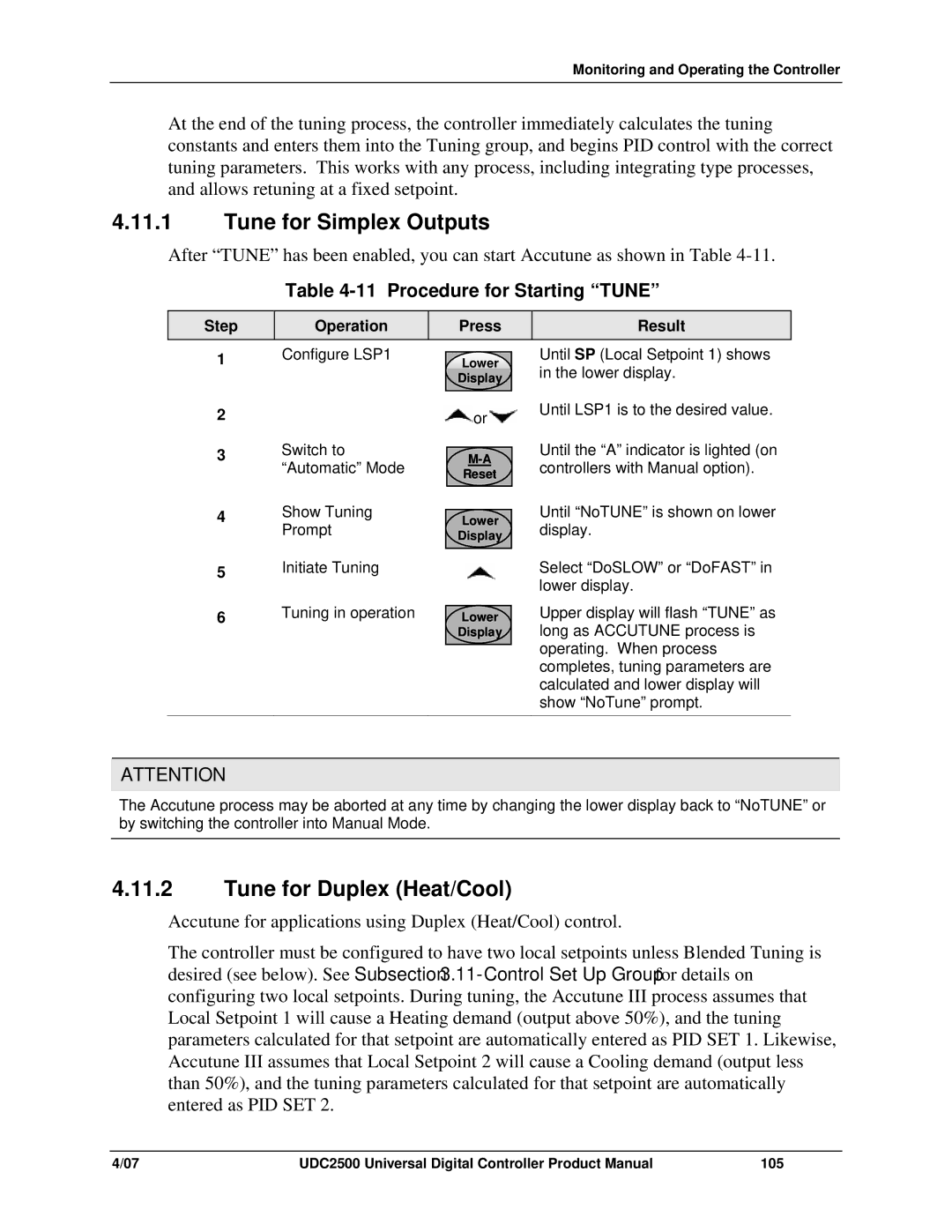
Monitoring and Operating the Controller
At the end of the tuning process, the controller immediately calculates the tuning constants and enters them into the Tuning group, and begins PID control with the correct tuning parameters. This works with any process, including integrating type processes, and allows retuning at a fixed setpoint.
4.11.1Tune for Simplex Outputs
After “TUNE” has been enabled, you can start Accutune as shown in Table
Table 4-11 Procedure for Starting “TUNE”
Step | Operation |
| Press | Result | |
1 | Configure LSP1 |
|
|
| Until SP (Local Setpoint 1) shows |
| Lower |
| |||
|
|
| Display |
| in the lower display. |
|
|
|
|
| |
2 |
|
| or |
| Until LSP1 is to the desired value. |
3 | Switch to |
|
|
| Until the “A” indicator is lighted (on |
|
| ||||
| “Automatic” Mode |
| Reset |
| controllers with Manual option). |
|
|
|
|
| |
4 | Show Tuning |
|
|
| Until “NoTUNE” is shown on lower |
| Lower |
| |||
| Prompt |
| Display |
| display. |
|
|
|
|
| |
5 | Initiate Tuning |
|
|
| Select “DoSLOW” or “DoFAST” in |
|
|
|
|
| lower display. |
6 | Tuning in operation |
|
|
| Upper display will flash “TUNE” as |
| Lower |
| |||
|
|
| Display |
| long as ACCUTUNE process is |
|
|
|
|
| operating. When process |
|
|
|
|
| completes, tuning parameters are |
|
|
|
|
| calculated and lower display will |
|
|
|
|
| show “NoTune” prompt. |
ATTENTION
The Accutune process may be aborted at any time by changing the lower display back to “NoTUNE” or by switching the controller into Manual Mode.
4.11.2Tune for Duplex (Heat/Cool)
Accutune for applications using Duplex (Heat/Cool) control.
The controller must be configured to have two local setpoints unless Blended Tuning is desired (see below). See Subsection 3.11- Control Set Up Group for details on configuring two local setpoints. During tuning, the Accutune III process assumes that Local Setpoint 1 will cause a Heating demand (output above 50%), and the tuning parameters calculated for that setpoint are automatically entered as PID SET 1. Likewise, Accutune III assumes that Local Setpoint 2 will cause a Cooling demand (output less than 50%), and the tuning parameters calculated for that setpoint are automatically entered as PID SET 2.
4/07 | UDC2500 Universal Digital Controller Product Manual | 105 |
